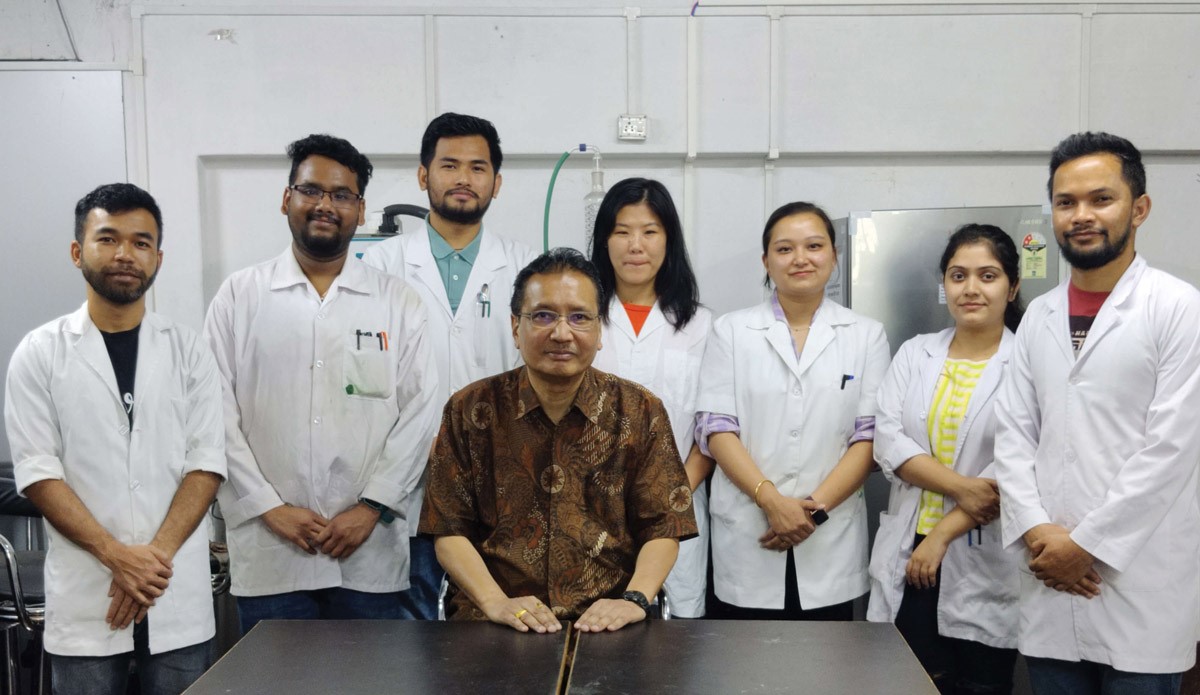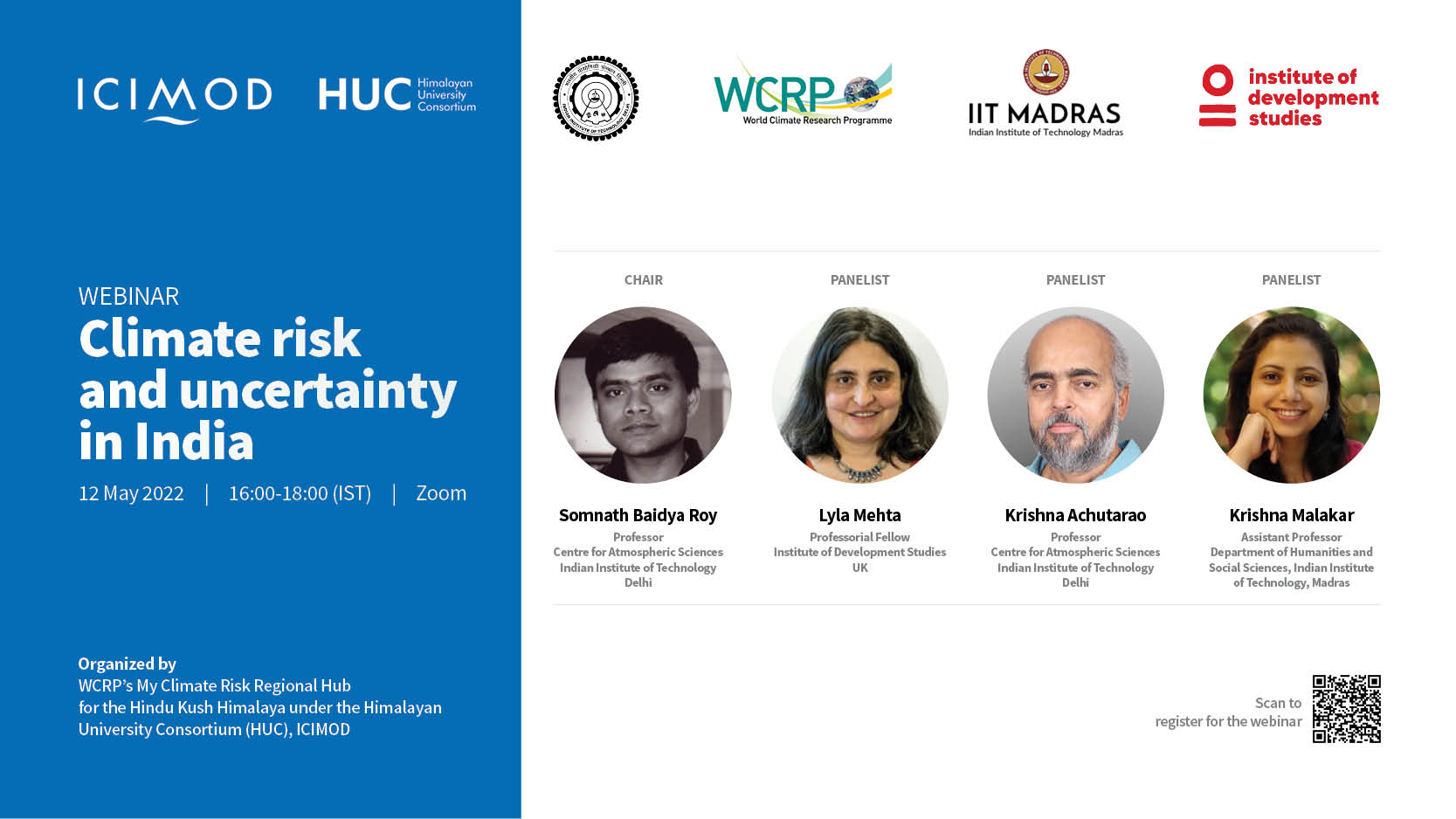Organized by: Himalayan University Consortium (HUC-ICIMOD) and Lahore University of Management Sciences (LUMS)
Supported by: University of Bristol
About the workshop and meeting
The workshop will review the work of stakeholders in the field of cryosphere science in Bhutan and Pakistan, particularly members of HUC. During this workshop, the HUC Thematic Working Group (TWG) on Cryosphere and Society will present their work, including an introduction to modelling and field methods and the potential for upscaling. The TWG will also share ongoing work in Bhutan and the Upper Indus basin on climate change impacts on livelihoods, ecosystems, hydrosphere, and cryosphere.
The first half of the workshop will focus on the ongoing project led by the University of Bristol. Our partners will then present their work, which will provide an overview of the ongoing challenges related to cryosphere hazards and society in the Hindu Kush Himalaya.
The first meeting of the core group of HUC’s TWG on Cryosphere and Society took place in March 2021. This follow-up meeting will update members of the progress and consolidate the Group’s governance structure and draft a concrete workplan for 2022.
The two events pay close attention to the diversity of stakeholders and unites academics and practitioners from across the region.
Expected outputs
In addition to a consolidated governance structure for HUC’s TWG on Cryosphere and Society, this workshop will contribute to the following three outputs:
- A mapped potential partner landscape in cryosphere hazards and society for the UIB. This will be useful for ICIMOD and partners to navigate the field. HUC has already fostered several exchanges between partners in Pakistan, which has prepared the ground for future collaborations and strengthened our role as a knowledge broker.
- A brief outline of the knowledge gaps and needs in the field of cryosphere, hazards, and society in the HKH and a draft roadmap for future research and action.
- A tailored infrastructure risk assessment tool and its application in the region, which will be presented and discussed during the workshop.
Expected participants
In-person participants include social scientists from HUC and ICIMOD strategic knowledge partners in Pakistan: Karakoram International University (KIU); University of Punjab; LUMS, Lahore; Information Technology University, Lahore; University of Peshawar; University of Baltistan; COMSATS University Islamabad/Abbottabad; and Aga Khan Agency for Habitat's (AKAH).
Virtual participants include members of HUC’s TWG on Cryosphere and Society in Afghanistan, Bhutan, China, and HUC Associate Members in Europe, North America, and Central Asia. Selected representatives from fellow TWGs and cross-cutting workgroups will be attending as observers.
Background
The Upper Indus Basin is one of the most vulnerable basins when it comes to water and ice as a resource. It has been impacted by an exceptionally high number of hydrosphere-related disasters, including glacial lake outburst floods, debris flows, landslides, fluvial and pluvial floods, as well as rapid erosion and sedimentation. While a number of studies on hazards have looked into the physical processes associated with these disasters, investigations including impact assessments on both livelihoods and ecosystems, especially with the inclusion of local experiences and knowledge, are largely lacking. Under a completely different climate regime, Bhutan faces similar challenges in remoter headwaters. Multiple studies have documented devastating events and their impacts in the region; however, transdisciplinary approaches to address these are lacking.
Agenda
Arrival and orientation – Sunday, 27 March 2022
|
Time |
Programme |
|
17:00 – 17:30 |
Registration |
|
18:00 – 20:00
|
Introduction and orientation Reception dinner Networking |
|
Time |
Programme |
Speakers |
|
12:30-13:30 |
Lunch |
|
|
13:30–14:00 |
Welcome remarks Opening remarks Introduction to the program |
Abubakr Muhammad, LUMS Tahira Yasmin, PIASA Amina Maharjan, ICIMOD |
|
14:00–14:15 |
Presentation of the Cryosphere and Society TWG Project |
Guy Howard, University of Bristol |
|
14:15–14:45 |
Introduction to the social science methods (quantitative and qualitative) in exploring and understanding of cryosphere hazards |
Rehmat Karim, KIU Adian Flint, University of Bristol |
|
14:45–15:15 |
Introduction to data collection from the physical side and presentation of preliminary findings |
Garee Khan, KIU Jeremy Phillips, University of Bristol |
|
15:15–15:45 |
Presentation of the study in Bhutan |
Deki Choden, Royal University of Bhutan Chogyel Wangmo, Royal University of Bhutan |
|
15:45–16:15 |
Presentation on previous cryo-hazard work in UIB – new developments, processes, and methods |
Jakob Friedrich Steiner, ICIMOD |
|
16:15–17:00 |
Discussion of synergies |
|
|
17:00–17:20 |
HKH – Arctic connection: Experiences from linking research to indigenous knowledge |
Jennifer Lukovich, University of Manitoba |
|
Time |
Programme |
Speakers |
|
10:00–10:20 |
Glacier-fed irrigation system vulnerabilities in UIB |
Bashir Ahmad, PARC |
|
10:20–10:40 |
Environmental and ecological implications of cryosphere changes and rapid development on species/habitats in HKH region in Pakistan |
Zulfiqar Ali, Punjab University |
|
10:40–11:00 |
The Cryosphere – Water Nexus in the Pamir |
Roy Sidle, Mountain Societies Research Institute, University of Central Asia |
|
11:00–11:20 |
Talk by AKAH Refreshments |
TBD, AKAH |
|
11:20–11:40 |
TBD |
Salar Ali, University of Baltistan |
|
11:40–12:00 |
Snow research in the Upper Indus Basin |
Jawairia Ashfaq Ahmad, LUMS |
|
12:00–13:00 |
Review of tools to assess infrastructure risk to cryospheric hazards |
Guy Howard, University of Bristol, and |
|
13:00–14:00 |
Lunch break |
|
|
14:00–15:00 |
Review of the LAHAR flow model |
Jeremy Phillips, University of Bristol |
|
15:00–16:00 |
Discussion around knowledge gaps and making science relevant for policy and practice |
Amina Maharjan, ICIMOD |
|
16:00-16:45 |
HUC’s TWGs and TWG on Cryosphere and Society |
Chi Huyen Truong (Shachi), HUC-ICIMOD |
|
16:45–17:00 |
Closing remarks Vote of thanks |
Philippus Wester, ICIMOD Bhawana Syangden, ICIMOD |






